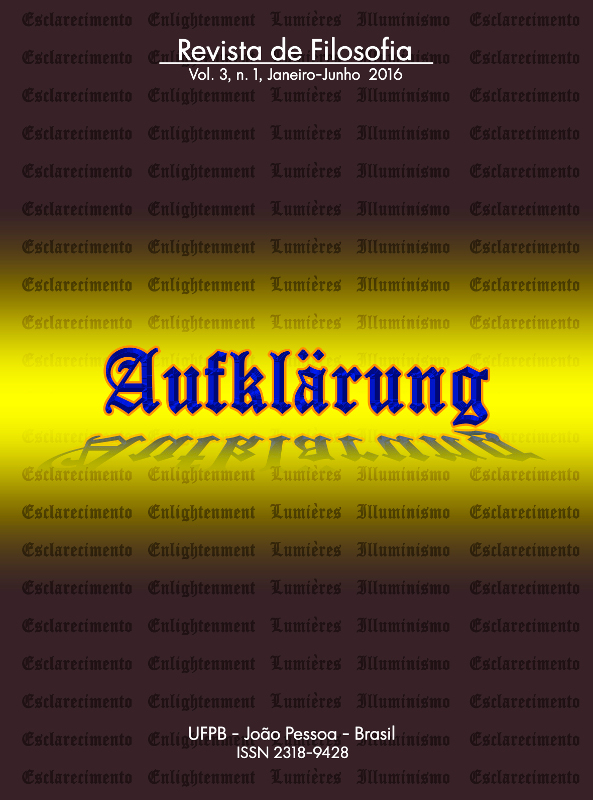Review of Maxwell, N. (2014) Global philosophy: Whatphilosophy ought to be?
DOI:
https://doi.org/10.18012/arf.2016.27930Keywords:
Filosofia da educação, filosofia da ciência, sabedoria, revoluçãoda pesquisa acadêmica, problemas globaisAbstract
Resenha de / Review of Maxwell, N. (2014) Global philosophy: Whatphilosophy ought to be? Exeter, UK: ImprintAcademic, Societas – Essays in Political & CulturalCriticism. (Pb, pp.192. ISBN 9781845407674)Este texto trata de uma resenhado livro de Nicholas Maxwell (2014),Global philosophy: What philosophyought to be? Exeter, UK: ImprintAcademic, Societas – Essays in Political& Cultural Criticism. Neste livro,Nicholas Maxwell rediscute a maior partedas ideias, argumentos e positções que eletem defendido com muito esforço nosúltimos 40 anos. Neste programa,podemos ler sobre suas concepções de oque a filosofia devia ser, sobre a naturezada ciência e seu progresso, como melhortratar do emprirismo e da racionalidade,sua visão sobre a história e a filosofia daciência, sobre a filosofia e a história dafilosofia, e a natureza da pesquisa(acadêmica), entre outras.
Downloads
References
Cioffi, F. (1998) Wittgenstein on Freud and Frazer. Cambridge: Cambridge University Press.
Critchley, S. (2015) ‘There is no theory of everything’. The Stone (New York Times), September 12, 2015.
Deleuze, G. and F. Guattari (1994) What is philosophy? London: Verso Books.
Ferrari, M. and G. Potworowski (2008) Teaching for wisdom: Cross-cultural perspectives on fostering wisdom. Springer: Science & Business Media, Philosophy.
Lipman, M. (1974). Harry Stottlemeier's discovery. New Jersey: Institute for the Advancement of Philosophy for Children.
Longino, H. (1990) Science as Social Knowledge: Values and Objectivity in Scientific Inquiry. NJ: Princeton University Press.
Maxwell, N. (1984) From knowledge to wisdom: A revolution in the aims and methods of science. Oxford: Blackwell.
Maxwell, N. (2007) From knowledge to wisdom: A revolution for science and the humanities (Expanded 2nd Ed). London: Pentire Press.
Mengel, T. (2010) ‘Learning that matters – Discovery of meaning and development of wisdom in undergraduate education’. Collected Essays on Learning and Teaching (CELT), Vol. III, pp.119-123.
Sternberg, R.J. (2001). ‘Why schools should teach for wisdom: The balance theory of wisdom in educational settings’. Educational Psychologist 36(4): 227-245.
Additional Files
Published
How to Cite
Issue
Section
License
Journal general policy
1.This journal works under a Creative Commons License aplied to online journals. That icence can be read in the following link: Creative Commons Attribution 4.0 International (CC BY 4.0).
2.Accordingly to this License, a)the journal declares that authors hold the copyright of their articles without restrictions, and they can archieve them as post-print elsewhere. b)the journal allow the author(s) to retain publishing rights without restrictions.
Metadata Policy for information describing items in the repository
1. Anyone may access the metadata free of charge at anytime.
2.The metadata may be re-used in any medium without prior permission, even commercial purposes provided the OAI Identifier or a link to the original metadata record are given, under the terms of a CC BY license refered for the Journal.







































